Inflammation of the prostate gland is a complex but treatable disease. When the first symptoms appear, you should immediately consult a doctor, because self-treatment can lead to serious complications - infertility, impotence, oncological complications and death. Modern drugs for the treatment of prostatitis fight the disease quickly and effectively. The drug method is the leader in therapy and is widely used in various stages of the disease.

Medical treatment of prostatitis
The use of certain drugs, as well as their effectiveness, depends on the pathogen, the form and degree of the course of the disease. Antibiotics are widely used in the treatment of bacterial prostatitis in acute and chronic forms. Medicines are also effective against abacterial prostatitis if the disease is permanent.
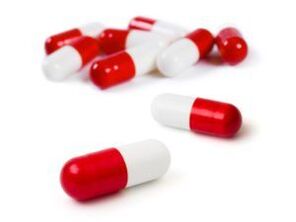
A complex technique is used for the treatment of the prostate gland, and several drugs belonging to different groups are prescribed according to the method of exposure and therapeutic effect:
- antibiotics or other antibacterial preparations;
- spasms and pain relievers;
- adrenaline blockers that reduce the tone of muscle tissue;
- immunomodulators that stimulate the activity of the immune system;
- hormonal and antihistamines;
- vitamin and mineral complexes;
- anticholinergic drugs.
All appointments are made by a urologist based on the results of examinations and tests. Treatment includes:
- cessation of inflammatory processes;
- facilitating the patient's well-being;
- elimination of the causes that lead to the development of the disease.
As a rule, complex drug treatment is used, including several types of drugs, the details of which are presented in the table.
| Types of drugs | Description | Purpose |
|---|---|---|
| Antibiotics | Kill disease-causing gram-negative and gram-positive bacteria. The main tool. | It is effective when a bacterial infection is detected. They are determined based on the analysis of the secret and antibiogram, which determines the sensitivity of the microbe to the drug. |
| Immunomodulators | Restore protective functions of the body, activate immunocompetent cells. | Recommended when immunity is reduced, they are almost always used to treat severe forms of prostatitis. It is effective during viral, helminthic, allergic inflammation of the prostate. |
| Alpha blockers | Block the interaction of adrenoreceptors with adrenaline and norepinephrine. They belong to the second line of therapy. | They are prescribed to reduce the tone of the prostate, blood vessels and bladder as a result of an imbalance between the sympathetic and parasympathetic nervous systems. |
| Non-steroidal anti-inflammatory drugs | Anti-inflammatory drugs. They inhibit the production of prostaglandins, which cause fever, convulsions, and muscle pains that cause genitourinary dysfunction. | They are used as an additional drug for symptomatic treatment in complex drug therapy for acute and chronic diseases. |
| Pain relievers | Analgesics that relieve pain syndromes cause relief. The pain subsides for a while. | Evacuation to relieve pain is described as excruciating in different places. |
| Herbal tablets | They are made from natural substances of plant or animal origin. | They are used as complementary medicines and for preventive purposes. |
Each drug group is described in detail below, but it should be noted that this information is for informational purposes only, any appointment is made by a urologist and treatment is carried out under his supervision.
Antibiotics in the treatment of prostatitis
Antibiotics are the mainstay of medical treatment for bacterial prostatitis. Depending on the pathogen, the presence or absence of accompanying infectious diseases, as well as a certain course of bacterial inflammation of the prostate, the attending physician may decide to prescribe them. Broad spectrum drugs are mainly used. Taking into account the severity of the course of the disease, drugs are prescribed in the form of tablets, intramuscular or intravenous injections, drops.
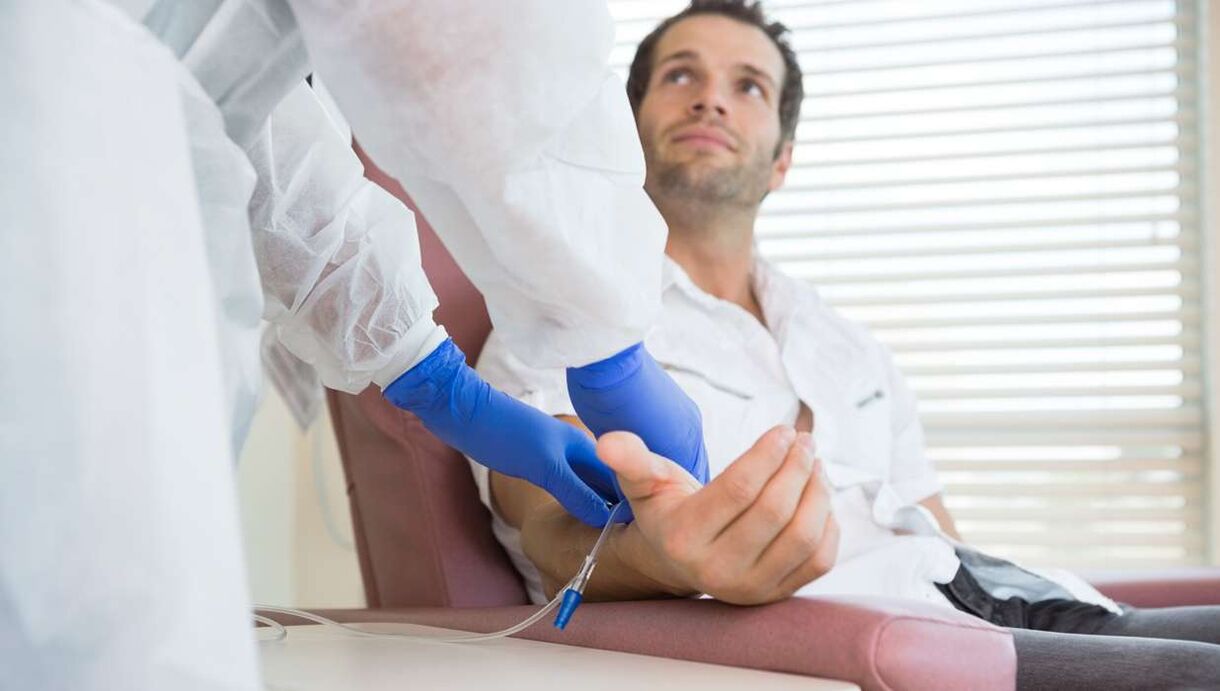
Treatment of acute prostatitis without the use of antibiotics is ineffective, because this disease is most often caused by bacterial infections. The use of this group of drugs allows the disease to be controlled. The duration of the course is about two weeks, the relief is already felt in the first days.
The situation with the treatment of chronic prostatitis is more complicated. In this case, against the background of an increase in secreted leukocytes, an antibiotic is prescribed depending on the CFU indicator in the excreta of the gonads. The course of treatment is longer, it can be 6-8 weeks. The choice of drugs should be based on the indicators of the antibiogram.
With asymptomatic prostatitis, antibiotics are prescribed only according to the indications:
- infinity;
- before surgery;
- before taking prostate tissue for biopsy;
- when identifying pathogens such as gonorrhea or chlamydia.
If non-bacterial prostatitis is caused by parasitic or fungal infections, if it occurs against the background of other bacterial diseases, etc.
It is important! Antibiotic treatment should be accompanied by antifungal drugs and eubiotics, which are necessary to restore the intestinal microflora.
Why are immunomodulators prescribed for the treatment of prostatitis?

Inflammation of the prostate is a serious disease, as a result of which the body's protective functions are significantly weakened. Especially during chronic prostatitis, the immune system works at its limits. Drugs that stimulate its work significantly accelerate the healing process, regardless of the type and form of prostatitis. They work effectively in cases of virus damage, in cases where antibiotics are ineffective.
Improper prescribing of immunostimulants can have a negative impact on the patient's health, so it is necessary to consult an experienced immunologist.
It is important! An immunogram is recommended to obtain accurate information about the state of the immune system.
The course of treatment cannot last more than two weeks. You cannot take two types of immunomodulators with similar effects at the same time.
For viral and allergic prostatitis, as well as for diseases caused by the attack of protozoa and helminths on the body, which are accompanied by a sharp and inevitable decrease in immunity, the selection and use of immunostimulating drugs is important for successful treatment.
Alpha-blockers and their features in the treatment of prostatitis
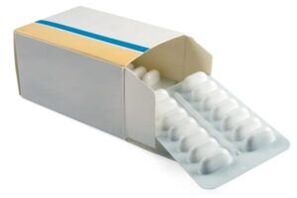
During the development of inflammation of the prostate gland, problems with urination inevitably arise, which is due to the high tone of the muscular tissues of the genitourinary system. To eliminate this problem, you need to relax the muscles. For these purposes, alpha-adrenergic blockers are used, which inhibit the release of adrenaline, smooth the muscle tissue by affecting the receptors of the bladder and prostate.
Alpha-blockers belong to the second line of drugs and are used as symptomatic treatment in complex drug therapy. Their action is aimed at normalizing intraurethral pressure, reducing the tone of the smooth muscles of the bladder and its neck, prostate gland. As a result, the symptoms decrease, they manifest themselves in the form of frequent and painful urination.
After taking the drug, its effectiveness is 48-80%:
- the process of urine flow is normalized;
- pain decreases;
- sexual desire returns;
- blood stagnates in the pelvis;
- reduction of benign hyperplasia.
Medicines of this group are widely used not only in urology, but also in the treatment of other diseases. The duration of treatment is determined by the attending physician.
All alpha-blockers are divided into two groups:
- Selective, with a minimum number of side effects. It selectively blocks alpha-1-adrenergic receptors located in the bladder and prostate. It often causes retrograde ejaculation.
- It is non-selective, affects the sensitivity of all alpha receptors, has a clear effect not only on the genitourinary organs, but also on the central nervous system.
The use of alpha-blockers in the treatment of prostatitis significantly increases the effectiveness of antibiotics and anti-inflammatory drugs, allowing you to speed up the time you can treat the patient. They are especially necessary for patients with prostatitis hypertension.
There are contraindications for use, ignoring them can lead to the development of orthostatic collapse and other serious consequences. It is equally important to follow the rules of combining the drug with other drugs.
Attention! The decision to add alpha-blockers to therapy can only be made by the attending physician.
Non-steroidal anti-inflammatory drugs (NSAIDs)
These drugs eliminate inflammation, reduce temperature and neutralize pain, they are considered only as auxiliary drugs. As a result of their use, the production of prostaglandins involved in the development of inflammation is suppressed. After taking NSAIDs, the intensity of the inflammatory process is significantly reduced, as well as:
- hyperemia decreases and the blood flow of the glandular tissue is restored;
- relieves pain and stops spasm;
- the temperature decreases, the febrile state stops.
The appointment is made by the attending physician, in emergency cases, for example, a single independent appointment. Without complex drug treatment, these drugs, if used without a prescription, will only worsen the health condition.
Nonsteroidal anti-inflammatory drugs are available in the following dosage forms:
- pills;
- candles;
- injections.
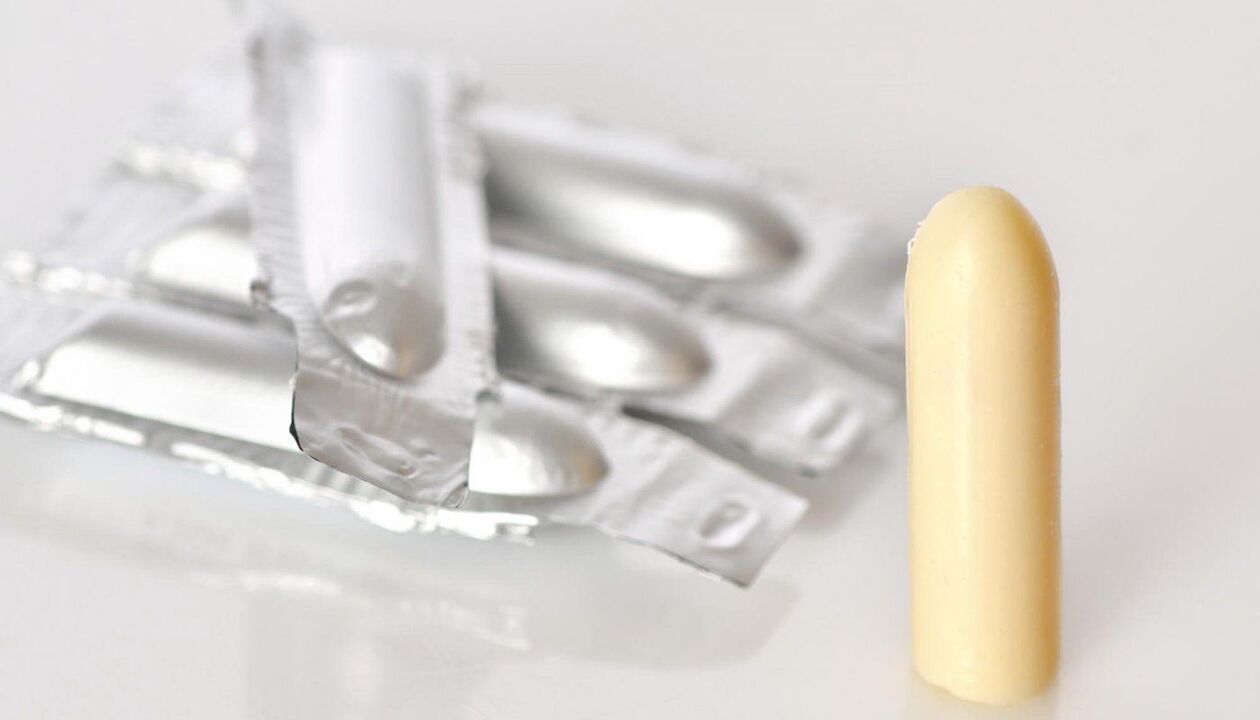
After taking the desired drug, relief occurs within 10-30 minutes. In case of anxiety and discomfort caused by the use of the drug, you should immediately consult a doctor. The most popular in the treatment of urological diseases are drugs based on ibuprofen, ketoprofen, diclofenac, because they have the least side effects, and at the same time, their effectiveness is particularly high.
Combined rectal suppositories (suppositories melted by body heat), which can contain antibacterial, analgesic and anti-inflammatory substances, significantly affect the course of the disease.
The first place in the popularity rating of drugs based on diclofenac.
Painkillers for prostatitis
The most popular painkillers to be used in the treatment of prostatitis are analgesics.
Another dosage form - suppository, is more effective than tablets, because it has a direct effect on the affected area. The leading positions are occupied by novocaine preparations, but their independent use is unacceptable, because the exact calculation of the dose is necessary, otherwise allergic reactions may occur. Nausea and vomiting, hallucinations, convulsions, fear, panic, etc. An overdose is also possible.
Candles with belladonna not only provide anesthesia, but also have antispasmodic and anti-inflammatory effects. Effective means available in the form of suppositories, tablets and injections.
Many anti-inflammatory drugs, including rectal suppositories, have an analgesic effect.
Frequent use of painkillers is extremely dangerous, as it can easily lead to complications. Reasonable single intake to relieve excruciating pain.
Should I take herbal pills?
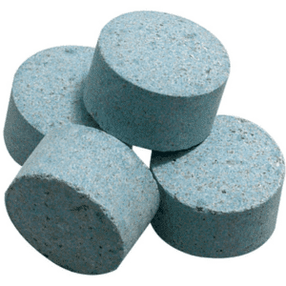
Medicines made on the basis of natural raw materials differ significantly from their "synthetic analogues". The advantages of herbal medicines are: a unique composition rich in local (unmodified) biologically active drugs, high bioavailability of drugs, low allergenicity and environmental compatibility.
Homeopathic and herbal preparations are gaining great popularity, but their use instead of antibiotics and anti-inflammatory drugs is not only ineffective, but also harmful to health.
As part of complex therapy, these drugs are safe and do not harm the body. However, their reception should be agreed with the attending urologist.
To achieve the effect, herbal preparations must be taken for many months, during which acute prostatitis can turn into a chronic stage, and advanced forms can become complicated and turn into diseases requiring surgical treatment and even cause oncology.
Prevention with herbal preparations
The use of herbal preparations in any form is justified only if they are used as an additional means. Good results are obtained when homeopathy is used for prevention and as a home remedy after completing a full course of medical treatment.
Herbal preparations have the following properties:
- There are tablets and teas with uroseptic effect, tansy, centaury, bearberry. Thanks to them, the prostate tissues are cleansed of bacteria, viruses and toxins created as a result of their vital activity.
- Suppressive inflammatory processes in the prostate gland. Calendula, yarrow, bearberry, St. John's wort and sage are used for production.
- Improvement of blood circulation and removal of blockage in the prostate is achieved through tablets based on chestnut and sweet clover.
- The maintenance of the immune system is carried out with the help of ginger, ginseng, mint and lemon.
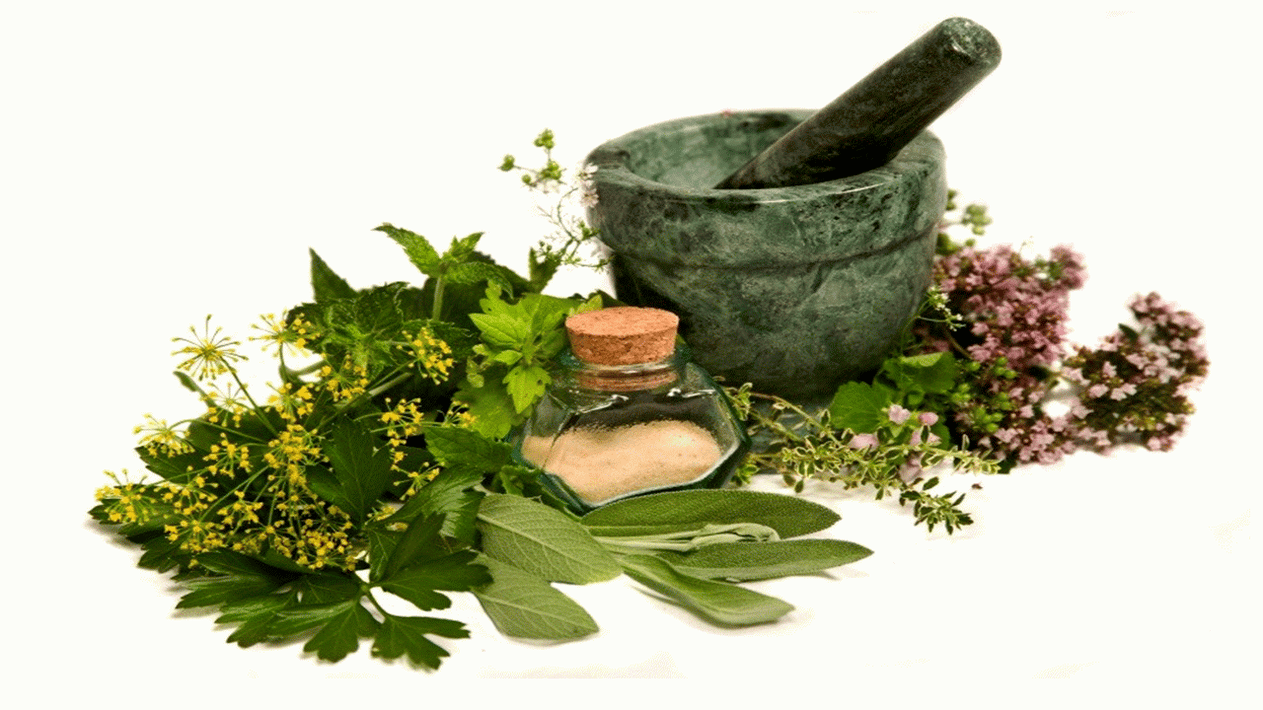
For men at risk, it is recommended to take special preventive drugs: vitamin and mineral complexes, dietary supplements, herbal preparations - tablets, suppositories, herbal preparations. They are also suitable for restoring health and potency after drug treatment.
Prophylactic agents can have narrow targets or a broad spectrum of activity. Like medicinal purposes, all prescriptions for disease prevention are given by a doctor. Even the most harmless products can harm your health if not used properly.
Rehabilitation after illness does not require hospitalization and the patient stays at home. Provided that medical procedures are prescribed, they can be performed in clinics or sanatoriums.






























